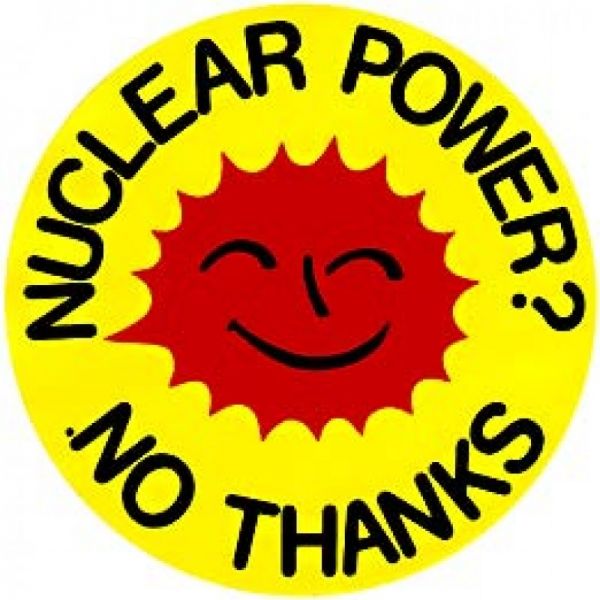It is a great pity that the world is not a more straightforward place. Complexity is the bane of the soundbite era. It confounds the politicians and the policy-makers for whom the holy grail is a simple, single, ideally affordable, answer to whatever problem they have set out to tackle.
But complexity isn't going to go away just because we would wish it so.

Readers of a certain age might remember a time when the concerned environmentalist could readily be identified in traffic because they would be driving a Citroen 2CV emblazoned with a "Nuclear power? No thanks" sticker, the words curled artfully around a smiling sun.
Roll forward to 2018. Given the state of many of our roads the idea of a car specifically designed to be capable of carrying a basket of eggs and four people across a ploughed field without breaking a shell (or a person) has its attractions, and might explain the ever-growing appeal of the SUV. But the tailpipe emissions of a 2CV would win it no friends in 'green' circles (even though the fuel economy was pretty good for its day), and the safety rating would win no Euro NCAP prizes.
So, if not on a bicycle we might instead expect our environmentally responsible citizen in 2018, focused on carbon and air quality, to be driving an electric car. Even though the main grid electricity would be sourced, in part, from a nuclear power station.
Which suggests that we have to be really quite careful when trying to define "the problem" and still more so when proclaiming "the answer". Were there world enough and time I would divert here to tell the sorry tale of the introduction of cane toads to Australia as a way of managing pest control (feel free to type 'cane toad' into your favourite browser and you'll see what I mean).
All I'm saying is that sometimes the outcome of addressing complex problems with bumper-sticker solutions is an unintended, unwelcome consequence.
Nowhere is this more true than in the debate about the dreaded "demon diesel".
Now don't get me wrong. I am not here to extol the virtues of an engine that has an undoubtedly unfortunate environmental record on air quality. But I do find myself fretting about the over-simplistic cry to ban the diesel from our streets. Because if you look carefully the picture is, well, complicated.
It is possible, today, to go into a showroom and buy what is to all intents and purposes a pretty 'clean' diesel in terms of tailpipe emissions. If your travel pattern involves routinely blatting up and down the motorway, rather than pootling around town, then a diesel might still be the best thing for you. Likewise, if you're towing a caravan or heavy trailer. And let's not forget the CO2 benefit from the better mpg performance.
Finding that vehicle might be something of a challenge, though.
Whilst we, the transport cognoscenti, might be happy debating the merits of Euro 6c versus Euro 6d models, the same would not be true for the average motorist. And the motorist looking to trade an older diesel for a newer, but not new, car might be forgiven for assuming that 'newer' automatically meant 'cleaner'. Independent testing suggests in real-world use that this would not necessarily be true either.
Pity, then, the folk charged with drawing up the rules for clean air zones across the country, faced with complexity whichever way they turn. Is it any wonder that they call for a central-Government-funded scrappage option for older diesels? It's not surprising, but our analysis has shown that it is extremely hard (and extremely expensive) to devise a scrappage option that would deliver a material air-quality benefit and still enable people to get around.
Which is why we'd argue that central Government needs to play a more active role, perhaps not in simplifying the problem, but at least in standardising the appropriate response.
The reality of moving to an all-electric future (be that plug-in or hydrogen) is that migrating out of a 30 million plus fleet of conventional cars will take quite a while. The rapid percentage increases in sales of ultra- and zero-emission cars masks the fact that these are rapid increases from a miniscule base. Production is limited: VW recently had to stop taking orders for its GTe hybrid Golf because delivery times were getting infeasibly long. And it's not as if we're the only country eager to make this transition.
So our advice to Government is to beware the seductive appeal of the "Diesel power? No thanks" sticker. Because, inconvenient as it may be, life, particularly outside our congested cities, is just not that simple.



